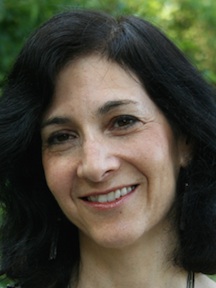By Alexandra Zigomalas
Sara Lipton (ΦBK, Barnard College, 1984), professor of history at Stony Brook University and president of Phi Beta Kappa’s Alpha Beta of New York Chapter, has recently been elected to a three-year term as Councilor of the Medieval Academy of America.
Lipton has always been drawn to the wonders of medieval history. “I think it really started with fairytales, but then I just never outgrew it,” Lipton remarked. “When I found out fairytales were not realistic, and that the truth was dirtier and darker, I thought it was even cooler.” The desire to learn more about all things medieval led her to pursue a degree in medieval studies at Barnard College and to continue her education with graduate work in the field.
While pursuing a PhD in medieval studies at Yale, Lipton decided to take an interdisciplinary approach. “I was interested in what kind of diversity or multiculturalism there was in the Middle Ages, and there was very little work done at that point,” Lipton stated. After being advised to investigate Jewish-Christian relations, she began looking for a good source that had not been researched. With the help of an art history professor, Lipton came across a set of manuscripts that were very anti-Jewish. This focused study became the topic not only of her dissertation but also her first book, Images of Intolerance: The Representations of Jews and Judaism in the Bible moralisée (1999). However, Lipton began to question the larger context of this study. “I started wondering what is the bigger story, and where does this fit in the overall representation of Jews?” Lipton asked. From there, she decided to research Jewish depictions in Christian art, and her second book, Dark Mirror: The Medieval Origins of Anti-Jewish Iconography, was published in 2014.
Lipton has pursued her passion for medieval studies not only for her personal interest in the field but also because of the lessons the past holds. “Unless people study the past, whether it is the medieval past or the ancient past or the more recent past, we cannot understand the range of possibilities for human social and political organization,” she said. “People who do not study history tend to think that there is only one way to do things, and studying the Middle Ages shows that there are other ways to do things.”
Because of her extensive work in the field of medieval studies, Lipton was elected Councilor of the Medieval Academy of America in January. Founded in Cambridge, Massachusetts, in 1925, the Academy is a leading institution for medieval studies in the United States. Lipton hopes to bring her interdisciplinary background to her new position. “One of the reasons I am very excited about being elected a councilor is because I’d like to try and figure out ways for the lucky people who have jobs and are at universities to make it more possible for young people who want to do interdisciplinary work to do it,” she explained. Lipton is also determined to continue the Academy’s preexisting work on creating an inclusive and diverse environment in the field. “As a woman and a child of immigrants, and as someone who works on religious and ethnic tolerance, I would like to help the Academy to continue their advocacy for greater openness, tolerance, and equality,” she said.
For Lipton, Phi Beta Kappa is much more than an honor society, and that’s not just because she’s president of the Stony Brook chapter. When she was elected to Phi Beta Kappa during her senior year of college, her father became quite emotional. “I am the youngest of six children,” she explained. “My father had served in World War II and gone to Rutgers on the G.I. Bill. He was the first person in his family to ever go to university, and he was elected to Phi Beta Kappa. Phi Beta Kappa was very important to him because he felt like he had arrived as an American, and that this was what he fought for.”
Lipton’s father held this honor as a secret because he did not want his children to feel the pressure to be elected Phi Beta Kappa. Lipton learned that none of her siblings had been elected, and that she had been her father’s last hope. “He gave me the key with actually his Yiddish name before he Americanized it, and so that is my Phi Beta Kappa key,” Lipton recalled. “It really meant something to me.”
Alexandra Zigomalas is a junior at Stony Brook University double majoring in history and art history. Stony Brook University is home to the Alpha Beta of New York Chapter of Phi Beta Kappa.




